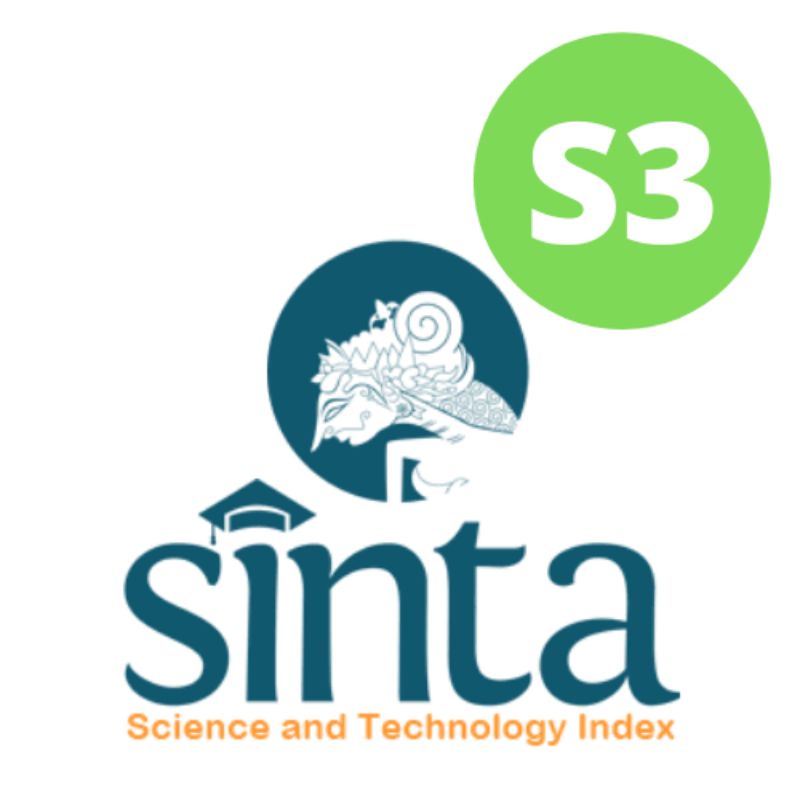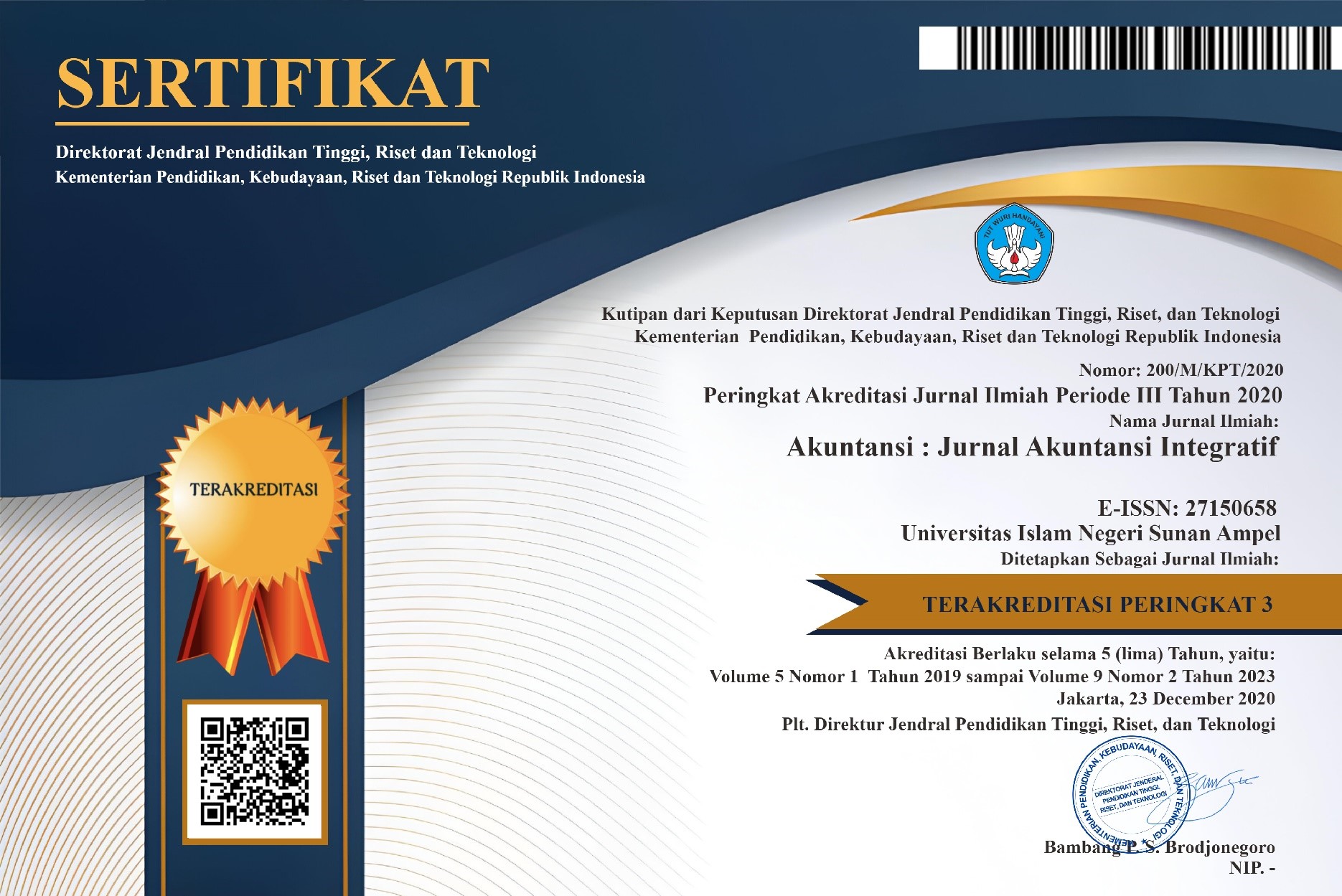Perception of Prospective Taxpayers: Tax Ethics and Tax Evasion
DOI:
https://doi.org/10.29080/jai.v9i2.1459Keywords:
Tax Evasion, Taxpayer, EthicsAbstract
This study aimed to determine the arguments of prospective taxpayers at the Faculty of Economics and Business of Universitas Brawijaya to justify tax evasion. This study was an exploratory research with a survey approach involving 96 respondents from the Faculty of Economics and Business, Brawijaya University. The data obtained was analyzed using descriptive statistics used Statistical Package for The Social Science program. Previous research determined that the higher a person’s earnings, the lower his or her tendency to commit evasion of tax, while based on respondent percepstions this study showed that the higher someone’s income, the greater her or his probability to commit tax evasion. Related to employment, no significant distinction regarding employment and tax evasion. However, this study showed that some jobs encourage the workers to commit tax evasion. The study found obstacles in the research subjects and did not get in-depth results. Focusing attention on factors including gender, income, major, education, employment can increase the application of tax ethics and reduce the rate of tax evasion.
Downloads
References
Collymore, A. (2020). The Ethics of Tax Evasion: A Study of Opinion in the United Kingdom. Journal of Accounting, Ethics and Public Policy, 21(2), 201-245.
Drogalas, G., Anagnostopoulou, E., Pazarskis, M., & Petkopoulos, D. (2018). Tax ethics and tax evasion, evidence from Greece. Theoretical Economics Letters, 8(05), 1018.
Halomoan, K., & Sitabuana, T. H. (2022). PAJAK, PANDEMI, DAN MASYARAKAT. SIBATIK JOURNAL: Jurnal Ilmiah Bidang Sosial, Ekonomi, Budaya, Teknologi, dan Pendidikan, 1(7), 1243-1254.
Hertiningtyas, I., & Yustina, A. I. (2021). Taxation Ethical Issues: Perspectives of Tax Professionals in Indonesia. The Indonesian Journal of Accounting Research, 24(1), 21-50.
KHALIL, S. (2022). An Empirical Study on the Demographics of Tax Evasion Attitudes in Lebanon.
Manurip, C. N., & Suwetja, I. G. (2022). Analisis Pemahaman Dan Persepsi Etis Dari Sisi Konsultan Pajak Tentang Penghindaran Pajak Aktif Dalam Bentuk Tax Avoidance Dan Tax Evasion (Studi Pada Konsultan Pajak Di Kota Bitung Dan Kota Manado). Jurnal LPPM Bidang EkoSosBudKum (Ekonomi, Sosial, Budaya, dan Hukum), 5(2), 433-440.
McGee, R. W., & Gupta, R. (2008). The ethics of tax evasion: an empirical study of New Zealand Opinion. Available at SSRN 1131346.
McGee, R. W., Djatej, A. M., & Sarikas, R. H. (2012). The ethics of tax evasion: A survei of Hispanic opinion. Accounting & Taxation, 4(1), 53-74.
Nurhidayati, R., & Suhartini, D. (2022). DETERMINAN PEMBUAT KEPUTUSAN ETIS KONSULTAN PAJAK. Jurnal Proaksi, 9(2), 144-159.
Putra, I. N. K. A. M., Anggraini, N. P. N., Wayan, N., & Rustiarini, I. (2017). Tax Evasion dalam Persepsi Etis dan Demografi Wajib Pajak. Proceeding TEAM (Tourism-Economics-Accounting-Management) Badung-Bali 12, 2, 176-183.
Sembiring, L. J. (2021). “Ternyata Cuma Segini Orang RI Patuhi Pajak, Kamu Termasuk?”, https://www.cnbcindonesia.com/news/20211105080424-4-289174/ternyata-cuma-segini-orang-ri-patuhi-pajak-kamu-termasuk/4, diakses pada 06 Juli 2022 pukul 17:28
Wardani, D. K., & Istiani, D. T. H. (2022). PENGARUH GENDER DAN PERSEPSI TINDAKAN KORUPSI TERHADAP NIAT MELAKUKAN PENYELEWENGAN PAJAK. Jurnal Pendidikan Dasar dan Sosial Humaniora, 1(3), 513-520.
Wijerathna, A. G. H. S. K., & Perera, H. A. P. L. (2019). A study of ethical perspective towards tax evasion in Sri Lanka.
Downloads
Published
How to Cite
Issue
Section
License
Copyright (c) 2023 Unti Ludigdo, Devy Pusposari, Ayu Fury Puspita

This work is licensed under a Creative Commons Attribution-ShareAlike 4.0 International License.









